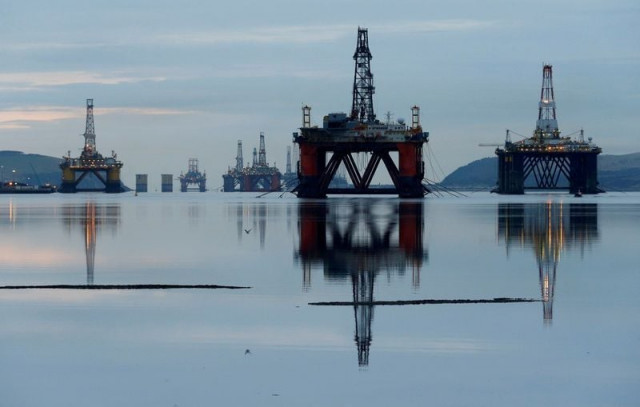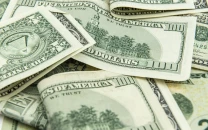Oil set for biggest quarterly rise since 2009
OPEC-led production cut lends support to prices

OPEC-led production cut lends support to prices. PHOTO: REUTERS
May Brent crude oil futures were up $0.83 at $68.65 a barrel by 1232 GMT, set for a gain of nearly 28% in the first quarter. The more active June contract was up $0.89 at $67.99 a barrel.
US West Texas Intermediate (WTI) futures were at $60.44 per barrel, up 1.14 cents, and on track for a rise of more than 33% over the January-March period.
Oil prices inch down as US crude stocks climb
For the two futures contracts, January-March 2019 is the best-performing quarter since the second quarter of 2009, when both gained about 40%.
Oil prices have been supported for much of this year by an agreement between the Organisation of the Petroleum Exporting Countries (OPEC) and allies such as Russia to cut output by around 1.2 million barrels per day.
"Production cuts from the OPEC+ group of producers have been the main reason for the dramatic recovery since the 38% price slump seen during the final quarter of last year," said Ole Hansen, Head of Commodity Strategy at Saxo Bank.
Barclays bank said on Friday oil prices "are likely to move still higher in Q2 and average $73 per barrel ($65 WTI) and $70 for the year".
Prices shrugged off a tweet from US President Donald Trump on Thursday, calling for OPEC to boost crude production.
"While OPEC, and above all Saudi Arabia, appeared in November to be obeying US President Trump's repeated demands to increase oil production, his tweets now are more likely to fall on deaf ears," Commerzbank said in a note.
OPEC and its allies are scheduled to meet in June to set policy, but some cracks in the union are emerging.
Petrol rates likely to go up by Rs12
OPEC's de facto leader Saudi Arabia favours cuts for the full year while Russia, which joined the agreement reluctantly, is seen as less keen to restrict supply beyond September.
US sanctions on OPEC members Iran and Venezuela are also buoying prices. Washington is exerting further pressure on oil traders to cut oil dealing with Venezuela or face sanctions themselves.
Bank of America said it expected oil prices to rise in the short term, with Brent forecast to average $74 per barrel in the second quarter. Heading towards 2020, however, the bank warned of a recession.
A monthly Reuters' survey of economists and analysts forecast Brent would average $67.12 a barrel in 2019, about 1% higher than the previous poll's $66.44.



1735506669-0/image-(16)1735506669-0-208x130.webp)















COMMENTS
Comments are moderated and generally will be posted if they are on-topic and not abusive.
For more information, please see our Comments FAQ